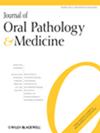The Need to Improve the Medical Subject Headings (MeSH) and the Excerpta Medica Tree (EMTREE) Thesauri to Perform Systematic Review on Oral Potentially Malignant Disorders
Abstract
Background
Despite recent advancements in the understanding and classification of oral potentially malignant disorders (OPMD), their terminology remains inconsistent and heterogeneous throughout the scientific literature, thus affecting evidence-based decision-making relevant for clinical management of these disorders. Updating this classification represents a necessity to improve the indexing and retrieval of OPMD publications, in particular for systematic reviews and meta-analysis.
Methods
Through a critical appraisal of the Medical Subject Headings (MeSH) and Excerpta Medica Tree (EMTREE) thesauri, we assessed gaps in the indexing for OPMD literature and propose improvements for enhanced categorisation and retrieval.
Results
The present study identifies inconsistencies and limitations in the classification of these disorders across the major medical databases, which may be summarized in the following findings: a) The MeSH database lacks a dedicated subject heading for “oral potentially malignant disorders”; b) EMTREE indexing is incomplete, with only 5 out of 11 recognised OPMD having corresponding terms; c) Incoherent controlled vocabulary mappings hinder systematic literature retrieval.
Conclusion
To ensure accurate evidence synthesis, the authors recommend searching both PubMed and Embase for OPMD studies. Moreover, the use of Embase’s PubMed query translator and Large Language Models, such as ChatGPT, may lead to retrieval biases due to indexing discrepancies, posing challenges for early-career researchers and students. We recommend introducing “oral potentially malignant disorders” as a standardised subject heading. Evidence-based medicine underpins clinical decision support systems, which rely on standardised clinical coding for reliable health information. Enhanced medical ontologies will facilitate structured clinical coding, ensuring interoperability and improving clinical decision support systems.

 求助内容:
求助内容: 应助结果提醒方式:
应助结果提醒方式:


